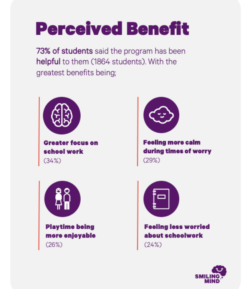
Engagement and Motivation:
Good emotional health promotes engagement and motivation in the learning space. When children are emotionally balanced, they are more likely to be interested in learning, actively participate, and stay focused on their studies.
Emotional Regulation:
Emotional health helps children develop the ability to regulate their emotions. This allows them to cope with stress and handle challenges and setbacks effectively, enabling them to maintain a positive mindset and concentrate on their learning.
Positive Relationships:
Emotional well-being contributes to positive relationships with peers and teachers. When children feel emotionally secure, they are more likely to form strong connections, engage in effective communication, and collaborate with others, creating a supportive learning environment.
Cognitive Functioning:
Emotional health has an impact on cognitive functions such as attention, memory, and problem-solving. When children are emotionally distressed, their cognitive abilities may be compromised, making it difficult for them to concentrate and retain information. Conversely, emotionally healthy children are more likely to have better cognitive skills, enhancing their ability to process and retain new knowledge.
Resilience and Coping Skills:
Emotional health fosters resilience and the development of effective coping skills. Children with good emotional well-being are better equipped to handle academic challenges, setbacks, and stressful situations. They can bounce back from difficulties, adapt to changes, and continue to learn and grow.
Overall Well-being:
Emotional health is a key component of a child’s overall well-being. When children feel emotionally balanced, it positively impacts their mental, physical, and social well-being. A positive emotional state promotes a positive outlook on life, creating a conducive environment for effective learning.
In summary, emotional health plays a crucial role in a child’s ability to learn and thrive academically. It influences their engagement, motivation, cognitive functioning, and relationships. Prioritizing emotional well-being in educational settings is essential for creating a supportive and inclusive learning environment that promotes optimal learning outcomes.
This blog is a follow up blog to my previous post on how pets can be great company and support emotionally in our lives!